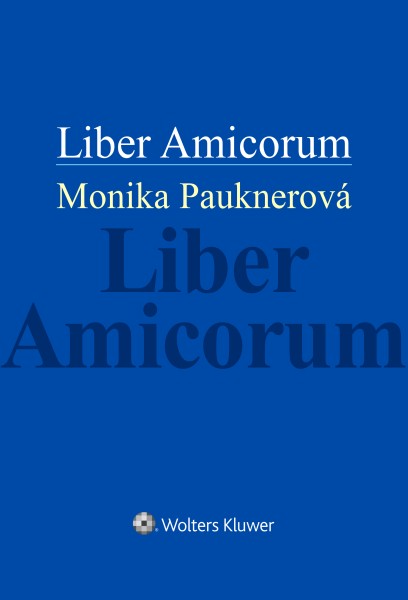Which law governs disputes involving corporations?
Guest post by Dr Sagi Peari, Senior Lecturer/Associate Professor at the University of Western Australia
When it comes to the question of the applicable law that governs disputes involving corporations: one must make a sharp distinction between two principal matters: (1) matters relating to external interactions of corporation (such as disputes between a corporation and other external actors, such as other business entities or individuals); and (2) matters relating to the internal interactions of a corporation (such as disputes within the corporate structure or litigation between a corporation and its directors). A claim of a corporation against another in relation to a breach of contract between the two is an example of a dispute related to external affairs of a corporation. A claim of a corporate shareholder against a director in the firm is an example of a dispute concerning corporate internal affairs.
The division between external and internal affairs of corporation is an important one for the question of applicable law. A review of the case law suggests a strong tendency of the courts to apply the same choice-of-law rules applicable to private individuals. Thus, the general rule of the place of tort applies equally to corporations and private individuals.[1] In similar, the advancing principle of party autonomy[2] does not distinguish between corporations and other litigants on its operational level. The very fact that litigation involves a corporation does not seem prima facie to affect the identity of the applicable law rules.
The situation becomes dramatically different in cases concerning the internal affairs of a corporation. These are the situations involving claims between the corporate actors (i.e. executives, shareholders and directors) and claims between those actors and the corporation itself. Here, different considerations seem to apply. First, internal affairs of corporations tend to be excluded by the various international statutes aiming to harmonise the applicable law rules.[3] Second, there is a clear tendency of the rules to adhere to a single connecting factor (such as the place of incorporation or corporate headquarters with some further constitutional implications[4]) to determine the question of the applicable law. Thirdly, there is a clear tendency of rejecting the party autonomy principle in this sphere according to which corporate actors are not free to determine the applicable law to govern their dispute.[5]
One of the neglected frameworks for addressing the external/internal affairs distinction relates to the classical corporate law theory on the nature of corporations and the relationships within the corporate structure. Thus, the classical vision of corporations perceives a corporation as an artificial entity that places the state at the very centre of the corporate creation, existence and activity.[6] Another, perhaps contradictory vision, challenges the artificial nature of corporation. It views corporation as an independent moral actor what dissects its existence from the originating act of incorporation.[7] Lastly, the third vision of corporation evaluates the corporate existence from the internal point of view by focusing on the bundle/nexus of contracts within the corporate structure.[8]
One could argue that an exercise of tackling the various theories of corporations could provide an invaluable tool for a better understanding of the internal/external division and subsequently shed light on the question of applicable law rules. Thus, for example, the traditional insistence of choice-of-law to equalise between corporations and private individuals seems to correlate with the ‘personality’ vision of corporation. On a related note, the insistence of the choice-of-law doctrine on a single connecting factor that denies party autonomy seems to be at odds with the nexus-contract theory and aligns with the traditional artificial entity theory of the corporation.
From this perspective, placing this question within the conceptual framework of corporate law could enable us to grasp the paradigmatic nature of the division and contemplate on whether the various suggestions for reform in the area of choice-of-law rules applicable to corporations do not just correlate with the underlying concerns and rationales of private international law/conflict of laws, but also those of corporate law.
I have tackled these (and other) matters in my recent article published in the 45 (3) Delaware Journal of Corporate Law 469-530 (2021) https://papers.ssrn.com/sol3/papers.cfm?abstract_id=3905751.
[1] See eg Regulation 864/2007, on the Law Applicable to Non-Contractual Obligations (Rome II), 2007 O.J. (L 199) 40 (EC), art 4 (1).
[2] See eg Hague Principles on Choice of Law in International Commercial Contracts, 2015.
[3] See eg Regulation 864/2007, on the Law Applicable to Non-Contractual Obligations (Rome II), 2007 O.J. (L 199) 40 (EC), art 1 (2) (f).
[4] See eg Case C-212/97, Centros Ltd. v. Erhvervs-og Selskabsstyrelsen, 1999 E.C.R. I-1459, 2 C.M.L.R. 551 (1999).
[5] See eg Hague Principles, Commentaries, 1.27-1.29.
[6] See eg Dartmauth College v Woodward 17 U.S. 518, 636 (1819)
[7] See eg Peter A French, ‘Responsibility and the Moral Role of Corporate Entities’, in Business as Humanity (Thomas J Donaldson and RE Freeman eds, 1994) 90.
[8] Of course, the distinction between the above-mentioned three theories is not sharp and variations and overlaps have been suggested over the years in the corporate law literature.

